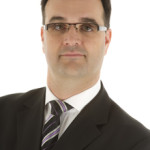
by Peter Holtmann:
This February sees my 10th year at Exemplar Global, defining and developing auditor competence. It also sees my 16th year in the conformity assessment industry and six years writing for The Auditor. The lesson I have learned from this time is that we are losing auditor competence faster than we are gaining it. This is worrying me. How do we stop the brain drain?
Since I started, the auditor landscape has changed significantly to one where we are seeing more auditors leave the profession than enter it. The market perception of auditors has become more critical and yet we have not seen a rise in the recognition of the positive impacts their efforts create.
This month Exemplar Global is conducting a survey of the auditor market to ascertain the career pathway of the auditing profession and what is needed to make it sustainable. The results are, thus far, quite clear. The industry has no auditors entering from the 18–25 age group, only 6 percent from the 26–35 year olds, and 15 percent from the 36–45 year olds. The industry is dominated now with professionals aged 56 and over at 50 percent. That doesn’t give us long to work on a solution to sustainability.
It’s not a matter of money. Our survey is showing 78 percent of our demographic earns more than $60,000 per year and 50 percent earns over $100,000.
So is it a recognition factor? Do people feel their work is not valued? Well, 88 percent of survey respondents indicated that they do feel recognized and that their years of service—which averages more than 15 years—are adding value to their customers.
So is it something more fundamental about the profession that limits the ingress of new blood? Is it a male dominated industry that lacks support of female colleagues? Seventy percent of the workforce is male but we are not seeing responses saying that this is a barrier.
Do you need to be employed full time to get a showing in this industry? The figures say that’s not it, either, with a 50-50 split of people being self-employed vs. employed.
Are we running out of “what if’s”? The survey does go on to ask very pertinent and previously unanswered topics but the reason is something far more intrinsic, and worrying.
The results were almost unanimous to the question, “What were the barriers to reaching your current professional standing?” A lack of ability to gain experience in the industry, no mentoring facilities available, and no organized approach to becoming recognized globally across many associations/certifications. When asked, more than 80 percent of respondents say that getting access to work experience to start the process of recognition was complicated, restricted, and coveted by those already in the profession. When asked if mentoring would be a welcomed offering to the profession, over 85 percent said “yes.” The next response they offered was, “When can we have it?”
Respondents noted that the “rules” for certification, of which more than 90 percent of respondents hold some form, are so varied between institutions and associations that the ability to gain multilateral recognition was prohibitively expensive and improbable to achieve.
So why do we, as a profession, keep doing this to our own? Why, in 10 years, have we not managed to organize ourselves to support those wishing to join our ranks and to ensure our efforts are sustained well into the future?
To stop the brain drain I strongly recommend we—as a collective group of professionals—look to clearly articulate a career pathway for our contemporaries, provide them mentoring capabilities, offer mentorships to those with the seniority and wisdom of 15+ years in the business, and create a unilateral approach to recognition.
The survey shows that over 50 percent of respondents wish to advance their auditing career in the next 1–3 years, and yet their ability to do so is largely obfuscated by an industry that is unorganized and unclear on how to proceed.
Like penguins on an iceberg we are all lined up waiting for someone to jump first. Well, I am jumping! My mission over the next few years is to establish a mentorship program and a mentoring program for auditors. I will find a way to create a cadetship/apprenticeship for our contemporaries, and I will work to ensure the broadest possible audience recognizes their capabilities earned.
This will not be a one-man endurance event—it works with the support of our whole industry, and I encourage you to work with your peers and colleagues to build processes that define our career in easy, uncomplicated, concise, and transparent steps. At the conclusion of my survey project in February, I will be analyzing data to do just this—map a clear and easy to follow career pathway. If you wish to add your voice to the survey go to https://www.surveymonkey.com/s/X2DHTWM.
Work with your chapters, your networks, and your colleagues to find solutions. Share them with others to problem-solve barriers. Find a way to ensure our profession remains vibrant and future-proof. Work to stop the brain drain that will see our skills and knowledge leave the industry over the next five years, or voice your willingness to work alongside me to find solutions. I am always looking for willing volunteers who care enough about our industry to make changes that can be demonstrated over the next 5–10 years.
About the author
Peter Holtmann is president and CEO of Exemplar Global (formerly RABQSA International Inc.) and has more than 10 years of experience in the service and manufacturing industries. He received his bachelor’s degree in chemistry from the University of Western Sydney in Australia and has worked in industrial chemicals, surface products, environmental testing, pharmaceutical, and nutritional products. Holtmann has served on various international committees for the National Food Processors Association in the United States and on the Safe Quality Foods auditor certification review board.

